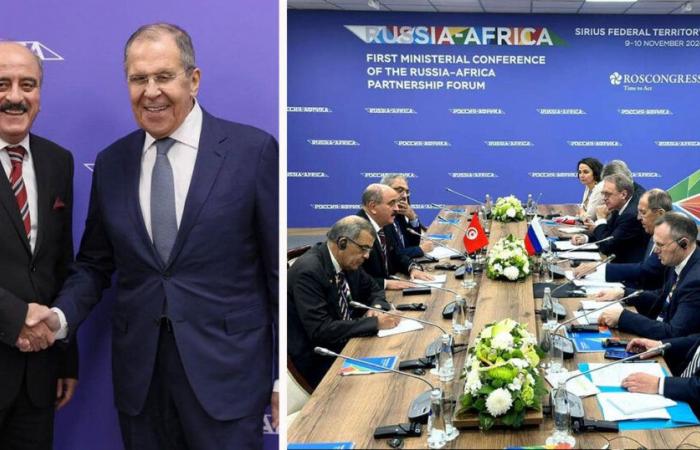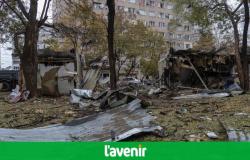The meeting between the heads of Tunisian diplomacy Mohamed Ali Nafti and his Russian counterpart Serguei Lavrov, Saturday November 9, 2024, made it possible to examine various aspects of cooperation between Tunisia and Russia and to consider ways to develop it in the commercial, economic, scientific, medical, pharmacological and academic fields, knowing that more than 1900 Tunisian students continue their studies in Russian universities.
Miracles Bahri
These themes will be discussed during the next session of the Tunisian-Russian Joint Commission in Moscow, said a press release from the Tunisian Ministry of Foreign Affairs, Tunisians Abroad and Migration, adding that the two officials exchanged points views on a number of regional and international issues of common interest.
The meeting took place on the occasion of the first ministerial meeting of the Russia-Africa Conference, Saturday and Sunday in Sochi, in which Minister Nafti is participating.
This ministerial conference, which brought together senior officials from around fifty African countries, is an opportunity for Vladimir Putin to demonstrate the failure of the policy of isolation and sanctions initiated against his country by Western states after the Russian assault in Ukraine in February 2022. The Kremlin intends to provide a new illustration of “multipolar world” that he wants to promote in his face-to-face with Westerners.
Lavrov also welcomed Tunisia’s participation in this ministerial meeting aimed at developing bilateral investments between the Russian Federation and African countries.
Nafti declared, for his part, that this type of meeting contributes to the development of the African continent and its stability, in addition to other cooperation frameworks within the African space.
A historic ally of the United States and the European Union, Tunisia obtained the status of major non-NATO ally in 2015. It participates in conclaves organized by this organization and often hosts military exercises that it organizes at the African and Mediterranean levels. It therefore remains firmly anchored to the Western bloc, as desired, since the 1960s, by the founder of the modern Tunisian state, Habib Bourguiba, who knew what his country owes to the support of the United States to access the independence and implement its first development plans.
On another level, Tunisia imports mainly oil and cereals from Russia and its trade balance with this country is historically and structurally in deficit.
In addition to the diversification of its international relations and alliances to avoid the tiring tête-à-tête with a unilateralist, haughty and condescending West, the interest for Tunis in its relations with Moscow would therefore first be to try to rebalance the bilateral trade and to examine ways of developing Tunisian exports to Russia and increasing the flow of Russian tourists to our country.






